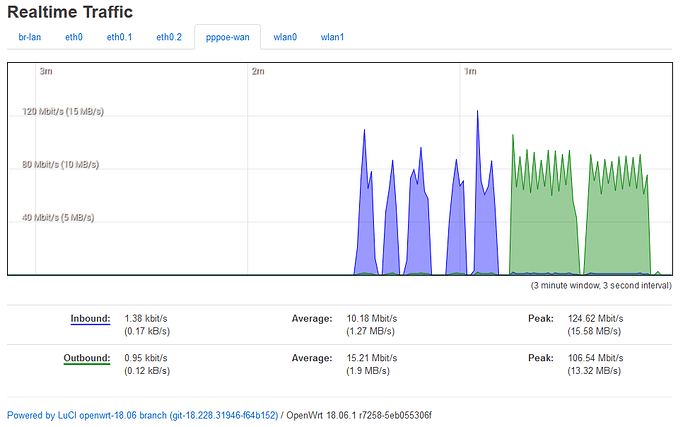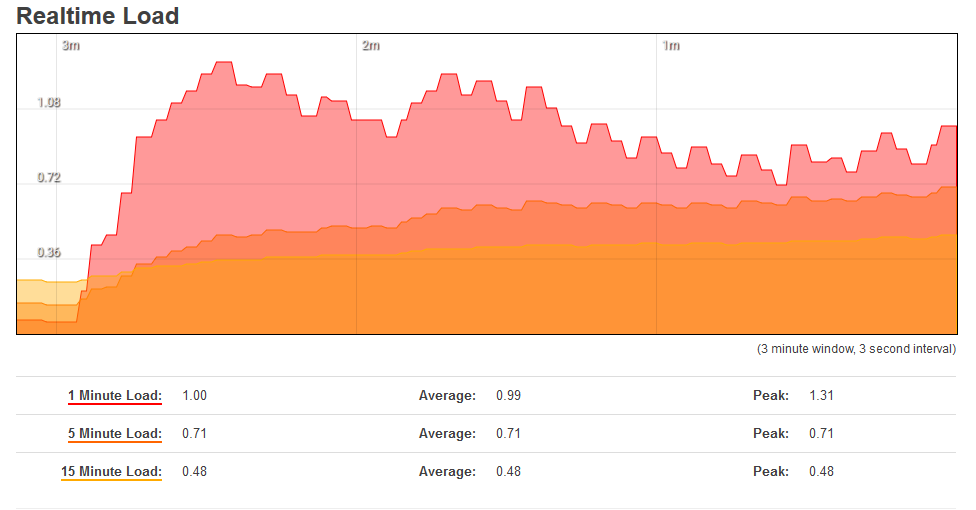Update: seems like it is fixed in latest snapshots since February 2019.
Hello! Sadly I couldn't find the explanation of my problem on the forums or elsewhere so I have to make a new thread.
While testing new OpenWRT installation from PC using a wired connection to the router I notice huge dips (from 75 Mbps down to 700 Kbps) in download speed in constant intervals. It is 100% reproducible. I also saw it when using OpenWrtScripts' betterspeedtest.sh which proved that it is not a PC<->Router cable problem (I included a screenshot of luci network graph during this load).
These dips look absolutely the same with SQM enabled either at 10/10 Mbps or 65/65 Mbps.
When these dips occur there's also UDP packet loss that is immediately noticeable in VOIP applications etc.
I noticed that my router (MT7621) supports new "Hardware NAT offloading" and while this does seem to improve speed consistency the dips are still there.
I'm not quite sure what hardware does my ISP use in the building but all I get is an ethernet cable using PPPoE.
When plugging ISP ethernet directly into PC this problem does not occur.
$ cat /etc/config/network
config interface 'loopback'
option ifname 'lo'
option proto 'static'
option ipaddr '127.0.0.1'
option netmask '255.0.0.0'
config globals 'globals'
option ula_prefix 'fd11:2537:623e::/48'
config interface 'lan'
option type 'bridge'
option ifname 'eth0.1'
option proto 'static'
option ipaddr '192.168.1.1'
option netmask '255.255.255.0'
option ip6assign '60'
config device 'lan_dev'
option name 'eth0.1'
option macaddr '40:31:3c:03:a8:dc'
config interface 'wan'
option ifname 'eth0.2'
option proto 'pppoe'
option username '***'
option password '***'
option pppd_options 'mtu 1492'
config interface 'wan6'
option ifname 'eth0.2'
option proto 'dhcpv6'
config switch
option name 'switch0'
option reset '1'
option enable_vlan '1'
config switch_vlan
option device 'switch0'
option vlan '1'
option ports '2 3 6t'
config switch_vlan
option device 'switch0'
option vlan '2'
option ports '1 6t'
Thanks in an advance for any help. Please tell me if I can provide any additional information to help troubleshoot this.





